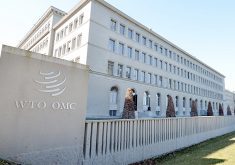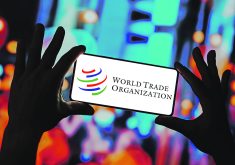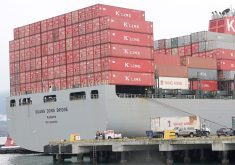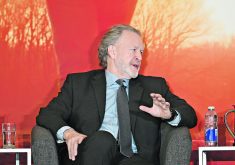WTO leader warning | World leaders should base strategies on new economic conditions, he says
The top international trade bureaucrat is warning that the world is in a dangerous period with international co-operation declining on the trade, environment and financial fronts.
World Trade Organization director general Pascal Lamy said the WTO should rethink its mandate in the Doha Round of negotiations, which have stalled since 2008.
Lamy, who will retire soon, said in a speech to an economic forum in Europe that the stalemate at WTO talks after more than a decade of negotiation is a symbol of the malaise.
He said there has been a dramatic change in world economies, including an explosion in the economic significance of developing countries since the last WTO negotiation was launched in 2001. As a result, leaders need to consider “a reconfiguration, rethink and adjustment of traditional multilateral co-operation, including in the WTO.”
Read Also

August rain welcome, but offered limited relief
Increased precipitation in August aids farmers prior to harvest in southern prairies of Canada.
He said poor world economic performance and financial crises in some countries increase the pressures for protectionism while a lack of agreement on other issues, including climate change action, leads to tensions within the international system of co-operation.
“In the last couple of years, a worrying attitude has emerged toward multilateralism,” said Lamy.
“In stark contrast to the calls for greater and improved international regulatory coherence that dominated the headlines during the outbreak of the global financial crisis in 2008, international co-operation has slumped to an ever-more precarious state.”
Things have gotten so bad that in some eyes, an international meeting that does not break down in acrimony “can be considered an important achievement for multilateralism,” he said at a forum in Berlin.
“I believe that multilateralism is at a crossroads.… Either it advances in the spirit of shared values and enhanced co-operation or we will face a retreat from multilateralism at our own peril.”
Despite the belief in some circles that agriculture and high supply management tariffs are at the core of the stalemate at WTO talks, Lamy said the bigger problem is the changing balance between developed and developing countries.
“While new economic and political trends have emerged, the rules governing multilateral co-operation have not kept pace with (global) changes,” he said.
“In fact, we are to a large extent living on the global rules created in the 1990s, the last period of active global governance.”
When the 2001 Doha Development Round rules were written, the assumption was that while developed economies should make significant concessions over “disciplines” on subsidies and import controls, developing countries should be held to less rigorous rules because they need to catch up.
Since then, booming developing economies such as Brazil, China and India have become major competitive exporters.
“For some, emerging economies have attained a level of development that warrants greater reciprocity of obligations,” Lamy said.
“For others, the income gap with the advanced countries renders equality of disciplines unfair. The inability to find a new balance in the multilateral trading system has so far made it impossible to conclude the Doha Round.”














